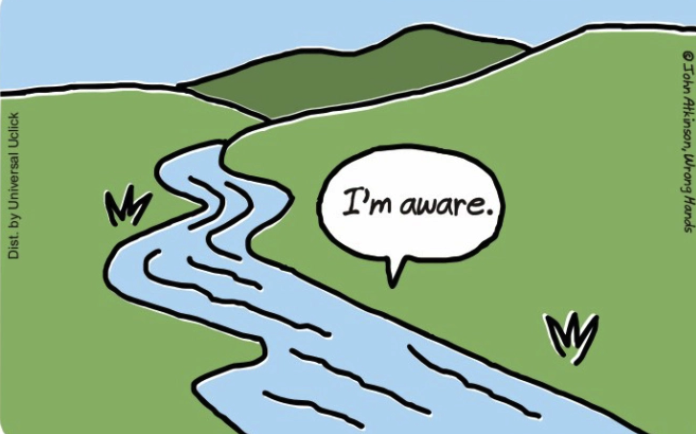We’ve all heard adults talk about how helpful it is to read self-help books. For a long time I doubted them, cast them away as silly (especially those about being a better teenager). I believed that my parents only suggested them so I would learn to be less annoying and be fully obedient to them. Right? Well, it wasn’t until I picked a book about seven habits before I realized that maybe these books could help people become better. In fact, I now can say that I’ve read several different books about improving my mental health and sports performance after the book, The 7 Habits of Highly Effective Teens, opened up a whole new genre of reading to me.
The 7 Habits of Highly Effective Teens by Sean Covey has helped me understand myself and mature as a teenager. The book begins by telling us that being a young adult can be difficult at times, but it is a critical period in our development. Furthermore, it explains the many factors that could impact a teen’s behavioral development. It introduces a myriad of dynamics in a teen’s life, including having to balance aspects such as schoolwork, sports, religion, relationships, and other factors that can make our lives extremely stressful. Many times throughout the year, especially as a year-round athlete and a junior, I feel extremely stressed because my athletic schedule is competing for time with my already jam–packed academic one. For example, I often fly to Europe during the school week which causes me to miss many classes. But at the same time, I had to learn to put the academics in the back of my mind and focus on my fencing performance. Without some of the techniques I learned from the book, such as prioritizing, I would not be able to flourish both in the fencing arena and in school. Feeling as if I can balance my academic and athletic life helps to provide a sense of contentment and fulfillment within me, two emotions that are critical for a teen as they navigate their busy and often stressful lives. Even more so, because it is more difficult for teenagers to manage and regulate their emotions and moods than an adult, finding and maintaining happiness is certainly an integral part of teenage life.
The 7 Habits of Highly Effective Teens not only opens a worldly view of the stressors of teenagers, it also aims to teach teenagers, including myself, how to build successful habits that will benefit us in the future, while also maintaining emotional and physical health and beneficial relationships. The book also discusses how to build confidence after failure, prioritize the important parts of life, set goals, take time to rest, and many other important and helpful habits to succeed as a teenager. These topics can be applied to our lives in many ways and are important to remember and implement during stressful times. This concept is especially crucial as exam week approaches, causing many students to worry and obsess even more than usual over their grades. I believe that starting small with these tactics will help build us all into better people.
In addition to these topics, the book gives us new terms to remember, such as “the relationship bank account.” The concept suggests that everytime someone hurts a person or gets into an argument with them, a small amount of trust, patience, or connection (the currency for “the relationship bank account”) is withdrawn. In contrast, by lifting somebody up or just spending quality time with someone can be considered as a deposit into the bank account. The book explains to us that the more “money” there is, the better the relationship will be. As a teenager, often our lives are so busy that we forget the significance of relationships. In my opinion, cultivating friendships that will last a lifetime is often overshadowed by the stress of performing well. By understanding that it’s the relationships we have with other people that give us joy, we would not forget to cherish the people around us everyday. I find that many teenagers cave into peer pressure or let their friends or family dictate their entire lives. While it is important to get along with others, teenagers must still maintain their own self-confidence and make the choices that are best for their development. On the other hand, being a teenager also means a craving for freedom. This, of course, usually means distancing ourselves from our parents and other adults. That is where the book’s underlying idea of balance comes in. It states to its teenage audience that it is imperative that we find a balance between making our own decisions and listening to the elders (or those with authority) who possess more knowledge and experience than us.
Additionally, cooperation is an important skill to practice and use during the teenage years. An integral part of cooperation is listening, as The 7 Habits of Highly Effective Teens tells us to first seek to understand others before wanting others to listen to us. Cooperation is not about who has the best ideas and who talks the most; instead, it is about synergizing everybody’s best ideas and building off one another to make something better than any individual could ever come up with. As an example, in school projects, we often come up with much better ideas in groups than we can individually. On the sports field, we play better with the understanding that our team is behind us. At least I know I do. Learning to work with peers is an incredibly important life skill, which can be utilized in workplaces, friendships, and personal endeavors. In general, after reading the book, I feel more comfortable because I realize that I struggle with some of the same things that other teengers deal with. By applying the lessons, habits, and concepts written in the book, I feel more confident in my identity as a teenager and am ready to build up beneficial practices to help me make the transition from a teenager to a true adult in the future.
Edited by Hayden Githuku


